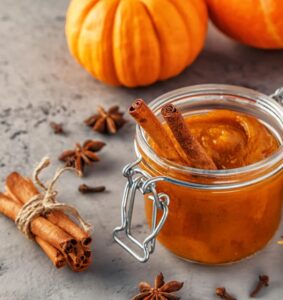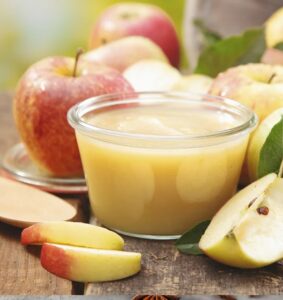The addition of fruit to beer is an ancient practice. Beer is an ancient craft with a basic recipe that predates writing, so it’s no wonder that brewers have experimented with a variety of ingredients during that time. The addition of fruit is a natural way to add interest to a traditional base style as well as increasing strength and nutritional value. Fruits can add sweetness or tartness. They mingle with malts and hops for greater aromatic complexity. They add novel qualities to beer flavor and color that can’t be accessed by grains alone.
However, fresh fruit tends to be expensive, prone to contamination, and variable in flavor. For those reasons and others, modern brewers who enjoy experimenting with fruited beer styles often rely on purees or extracts when brewing in large quantities. We’ll look at the advantages and disadvantages of each in the following sections.
What are the advantages and disadvantages of fruit extract as a beer flavoring?
 Fruit extract is affordable and convenient compared to fresh fruits. It can be easily added to beers post-fermentation for a flavor boost, and it’s shelf-stable. However, because extracts are highly concentrated, they can be candy sweet, which isn’t always ideal.
Fruit extract is affordable and convenient compared to fresh fruits. It can be easily added to beers post-fermentation for a flavor boost, and it’s shelf-stable. However, because extracts are highly concentrated, they can be candy sweet, which isn’t always ideal.
Overall, a high quality extract can be useful as a finisher, but as Ska Brewing COO Steve Breezley noted in a recent Brewer Magazine article, “The limitation with extracts is that they can tend to have ‘fake’ flavors, and generally can’t be used as a wholesale substitute for real fruit product.”
Pros of fruit extract for breweries
• Affordable fruit flavoring
• Easy to use in brewing process
• Shelf-stable storage
Cons of fruit extract for breweries
• Concentrated sugars can add syrupy sweetness
• Artificial flavor to fruited beers
• Limited application during the brewing process
What are the advantages and disadvantages of fruit extract as a beer flavoring?
 Puree is the most common way to add fruit to beer for a number of reasons. Like extract, it’s easy to work with; however, unlike extracts, which are added at the end of the brewing process, fruit purees can be added at various stages of the brewing process to achieve different qualities.
Puree is the most common way to add fruit to beer for a number of reasons. Like extract, it’s easy to work with; however, unlike extracts, which are added at the end of the brewing process, fruit purees can be added at various stages of the brewing process to achieve different qualities.
While not all puree is shelf-stable, at Purée Arête, we use aseptic processing to eliminate potentially harmful microbes which makes otherwise perishable purees shelf-stable. Our puree packaging requires no refrigeration, so it saves valuable cold storage space.
Fruit puree has a brightness and flavor intensity that is often superior to fresh fruit, which can be variable depending on environmental factors. The processing of fruit purees also frees up sugars for easier fermentation than fresh fruits.
Pros of fruit puree for breweries
• More affordable than fresh fruit
• Easy to use in brewing process
• Shelf-stable storage
• Natural brightness and intensity of real fruit flavor
• Easier fermentation
• Usable at various stages of the brewing process
• Drier sweetness level that allows base beer to shine
Cons of fruit puree for breweries
• More expensive than extract
• Larger containers than extract
 Are you ready to add real fruit flavor to your beer?
Are you ready to add real fruit flavor to your beer?
Brewers in search of novel flavors need look no farther than Purée Arête fruit purées crafted by Austrian chef Wolfgang Brandl. Our purees add rich, natural flavors to ales and pilsners because Purée Arête’s aseptic fruit puree is made from the highest quality fruits available. Every step in our process – from fruit selection to aseptic packaging – is designed to make your brews the best on the market.
